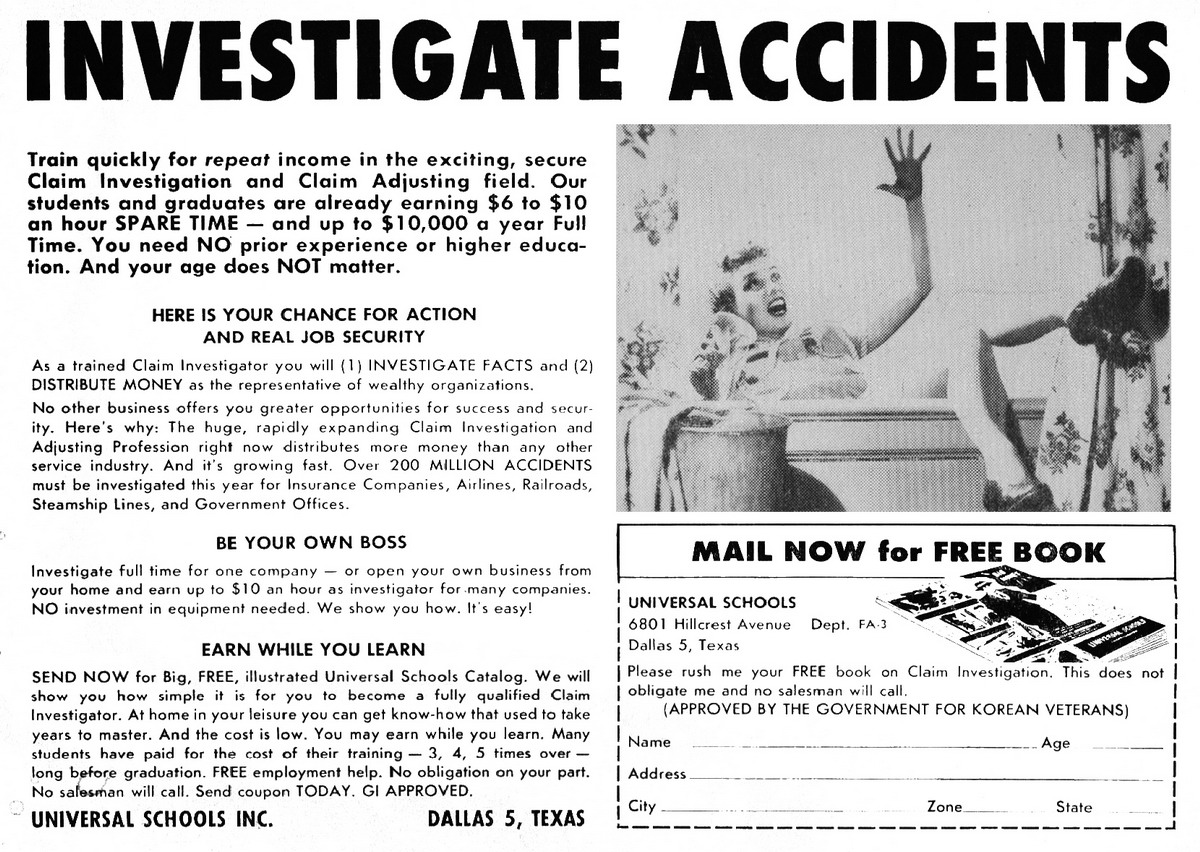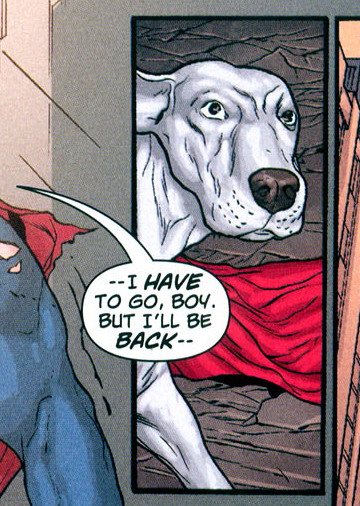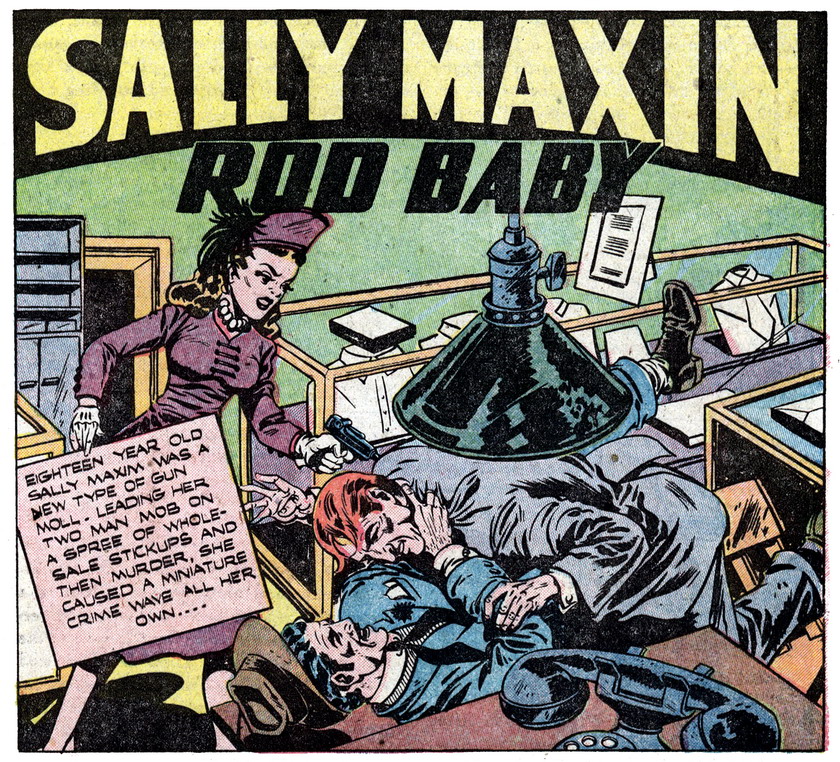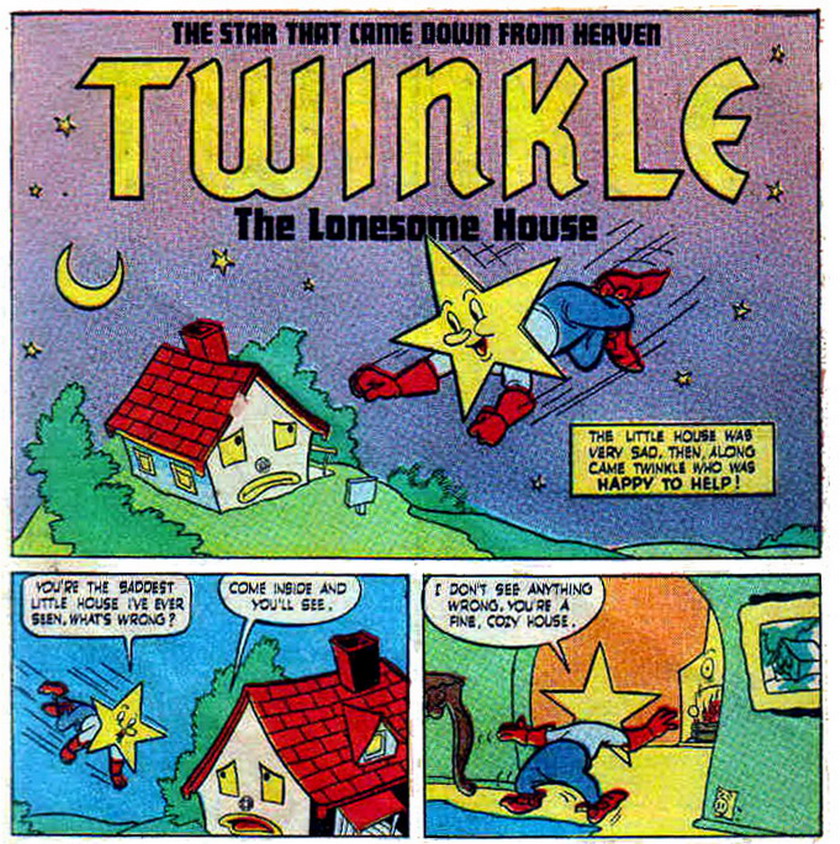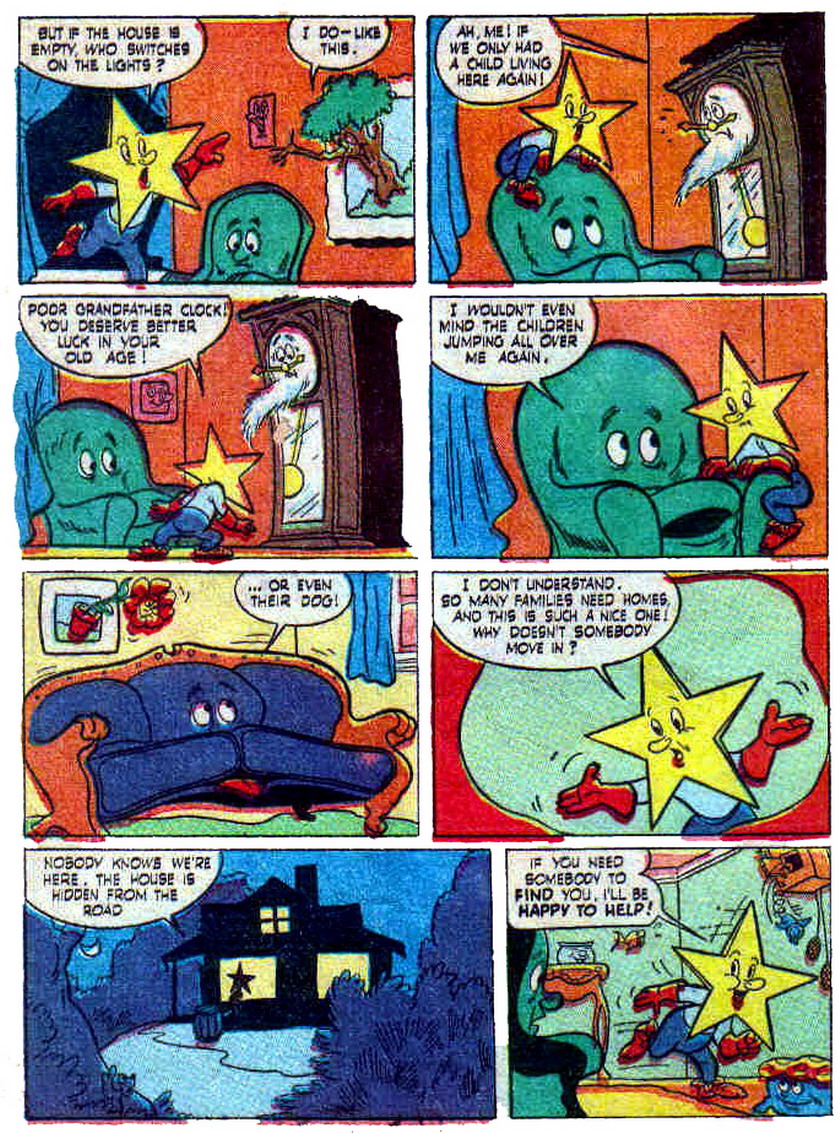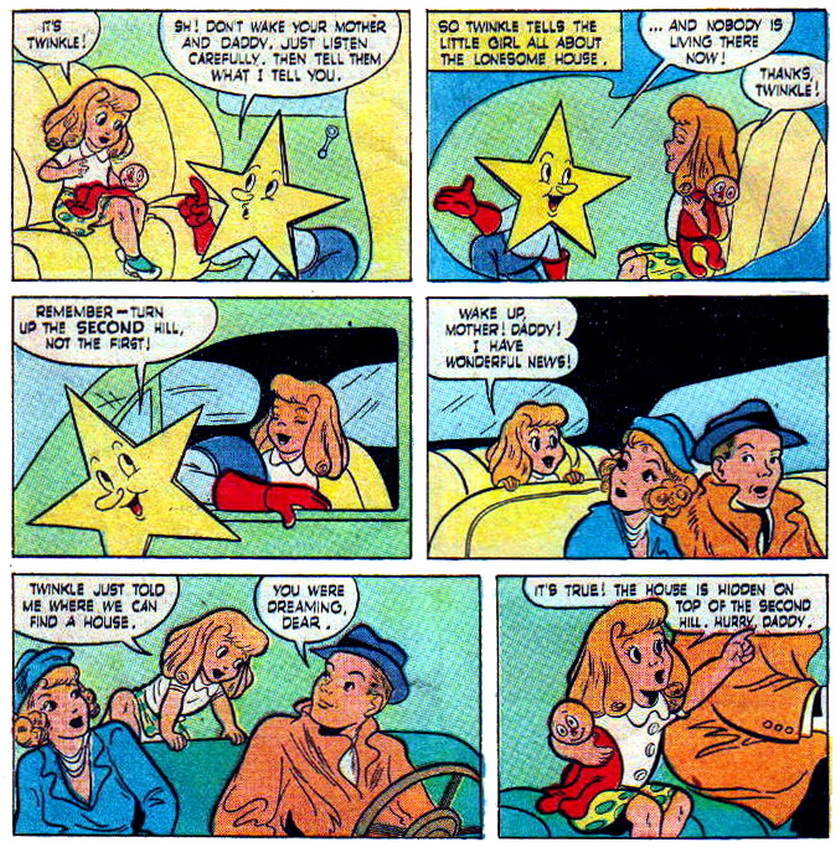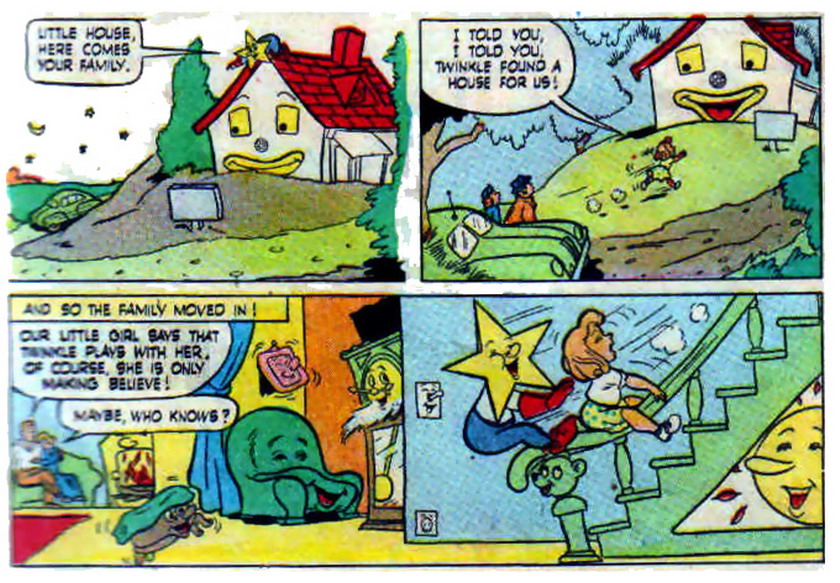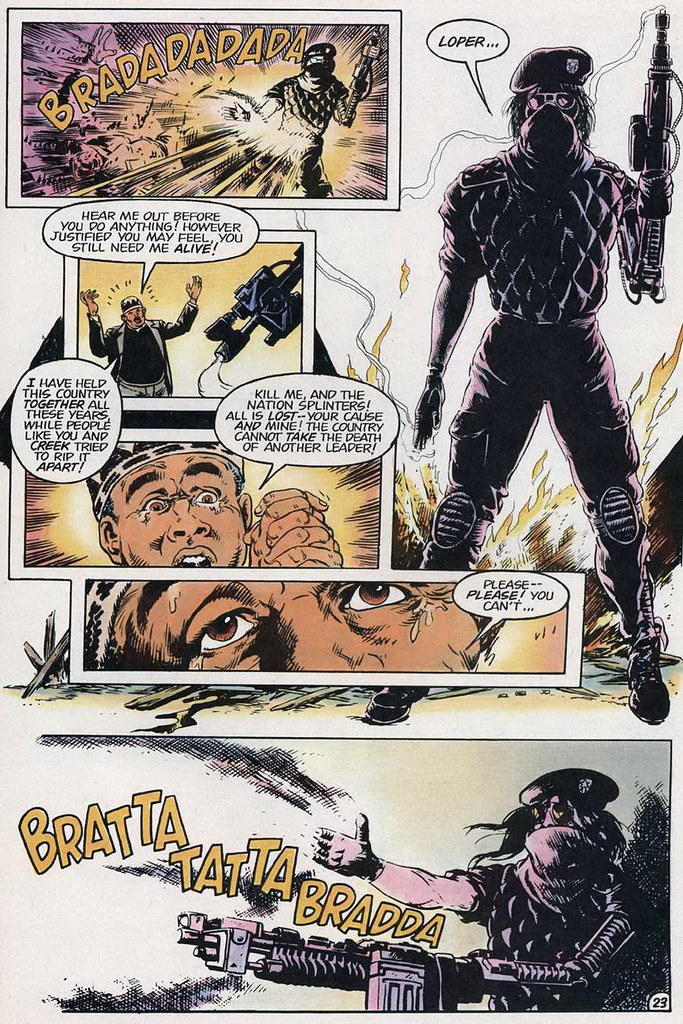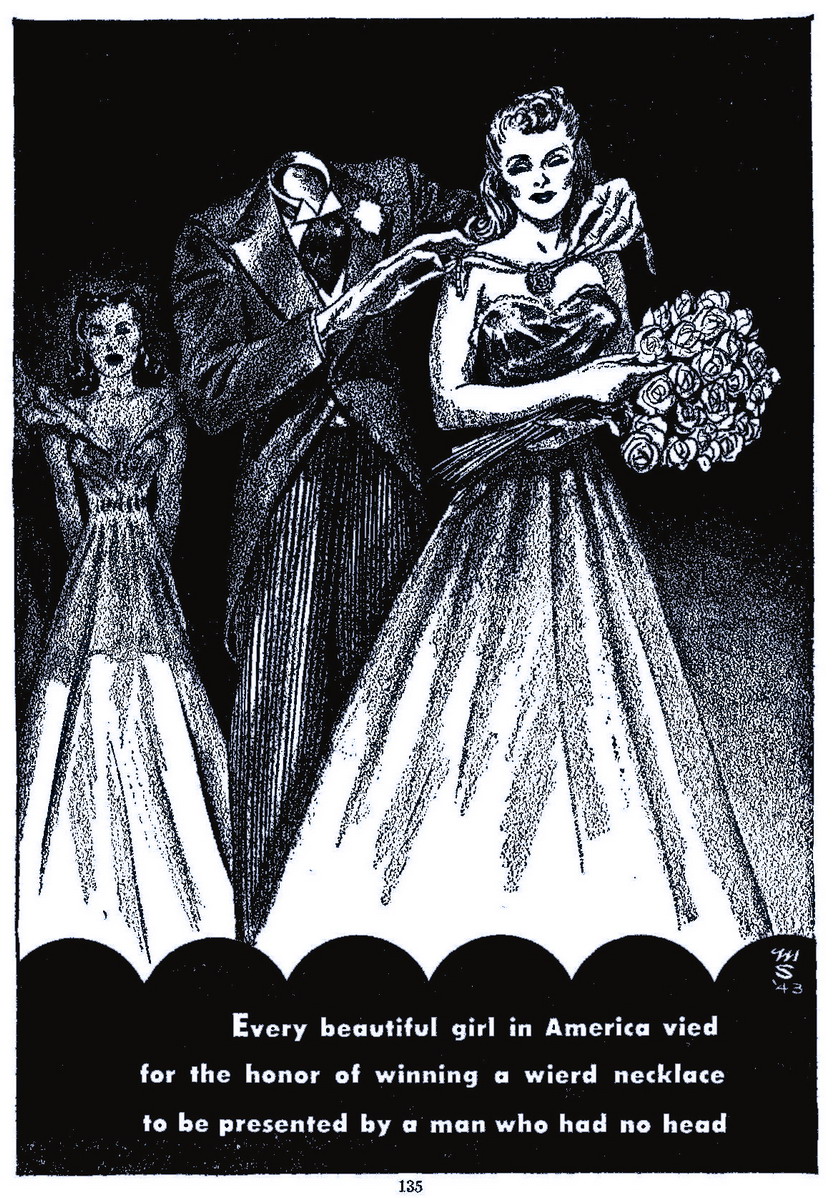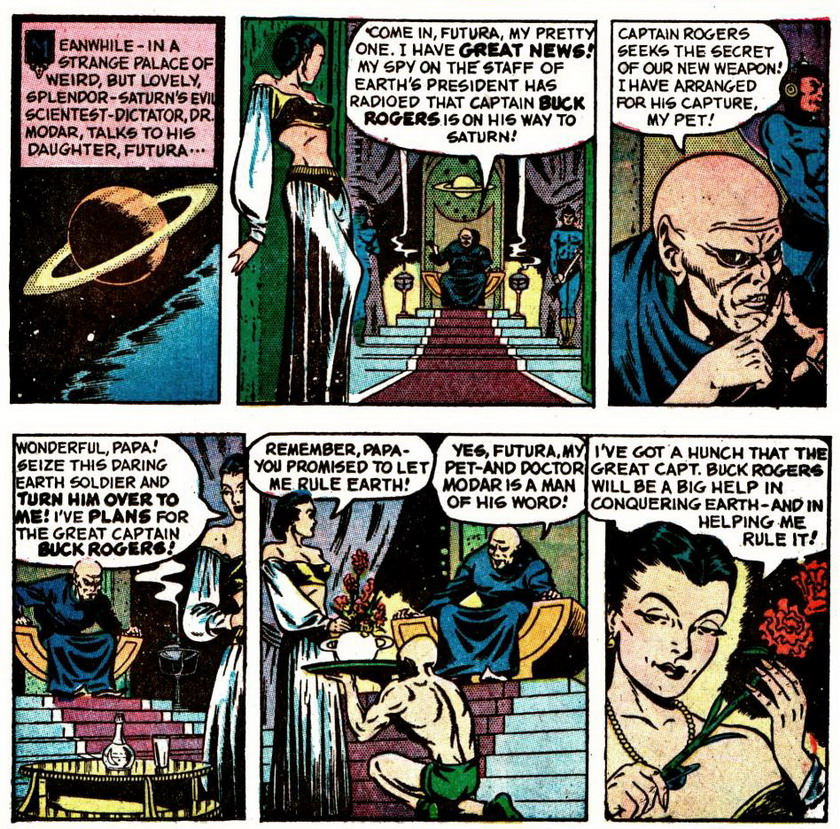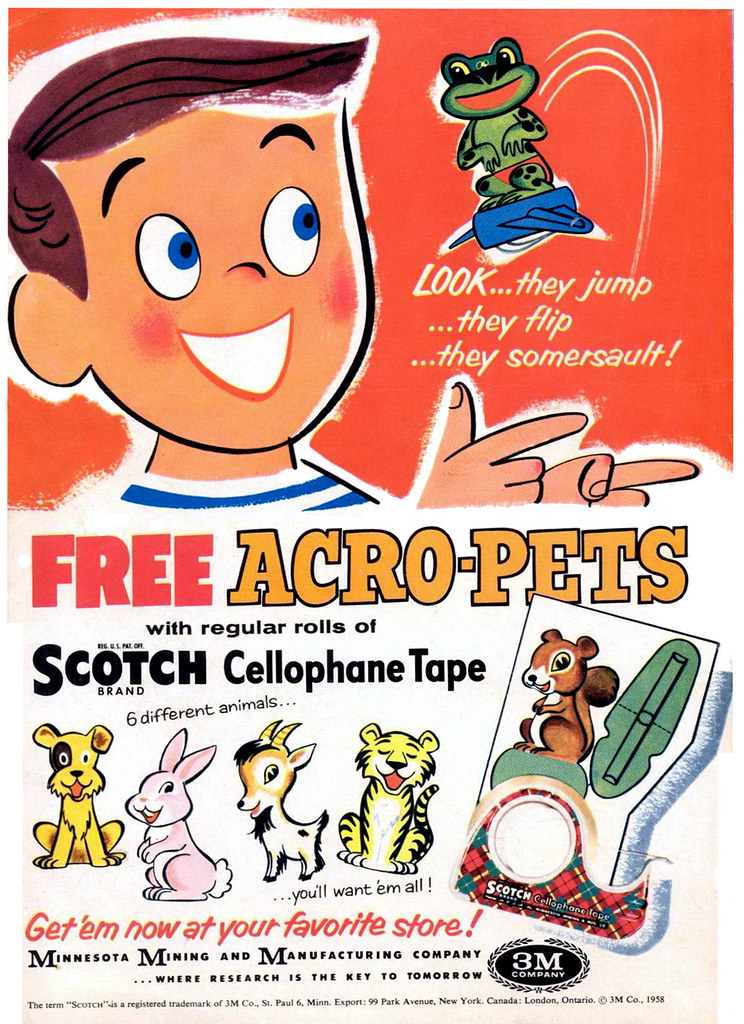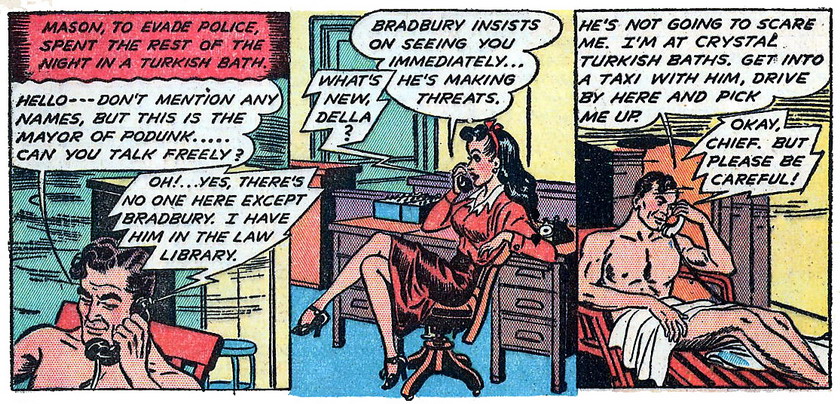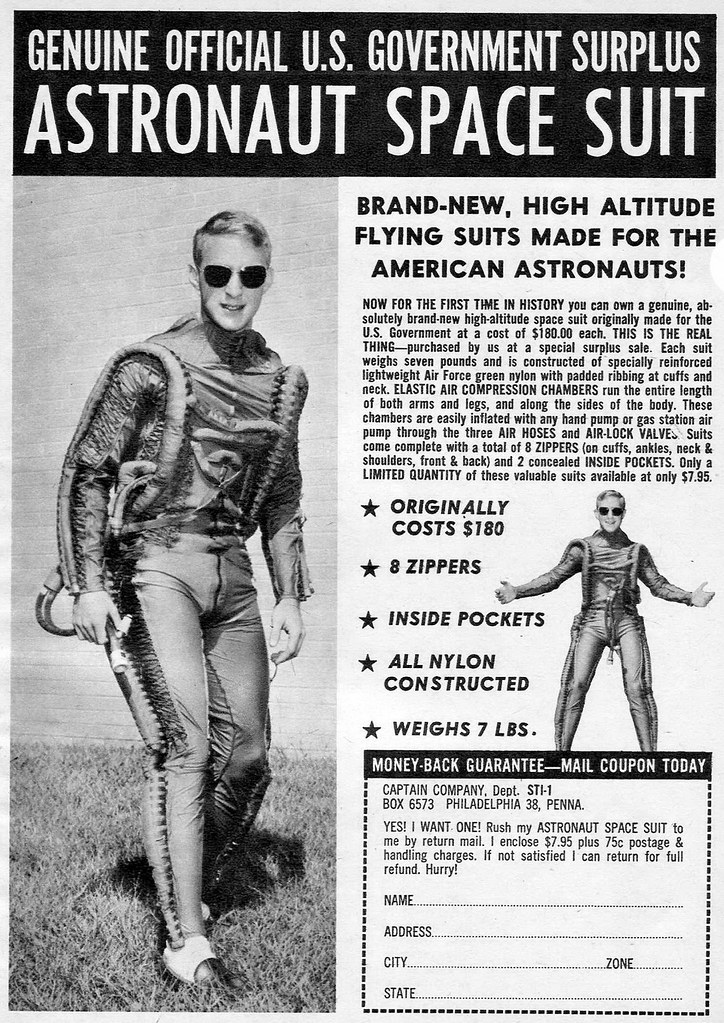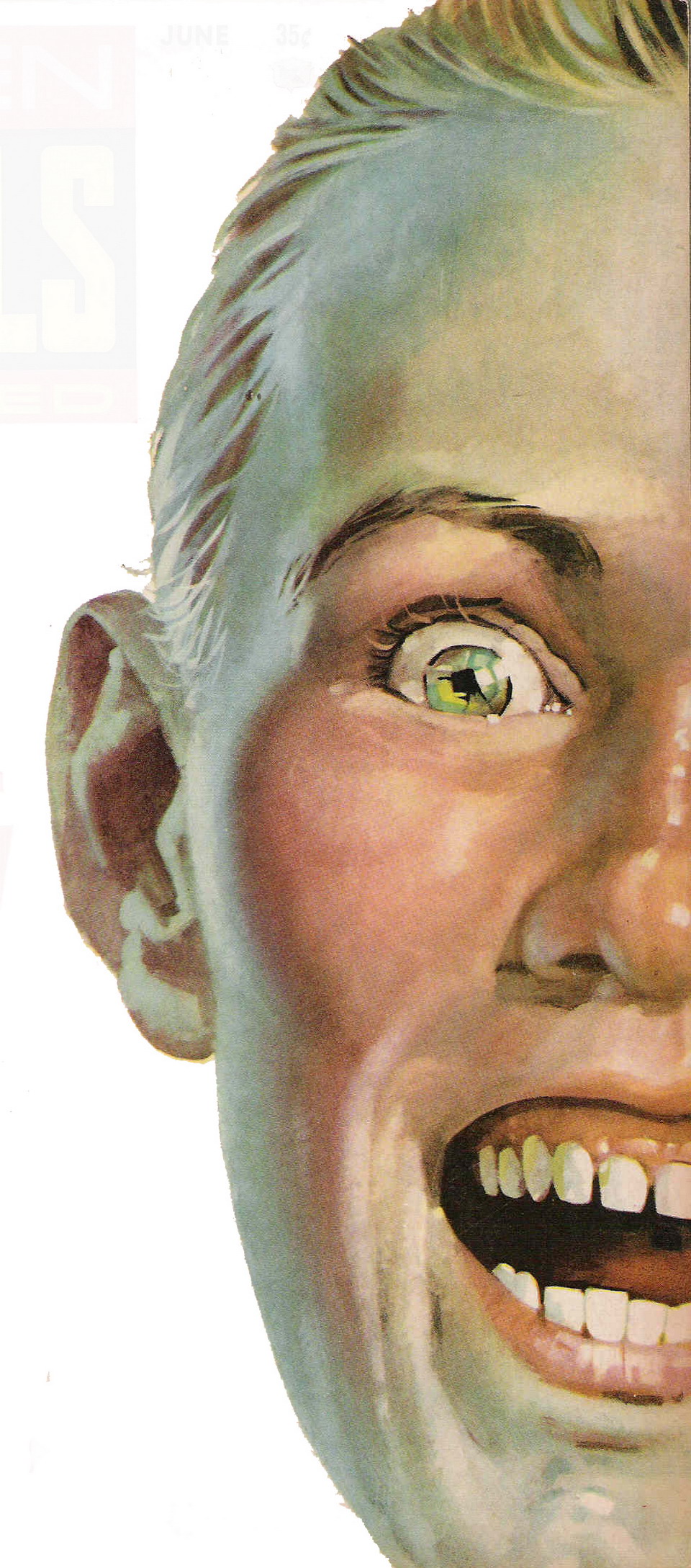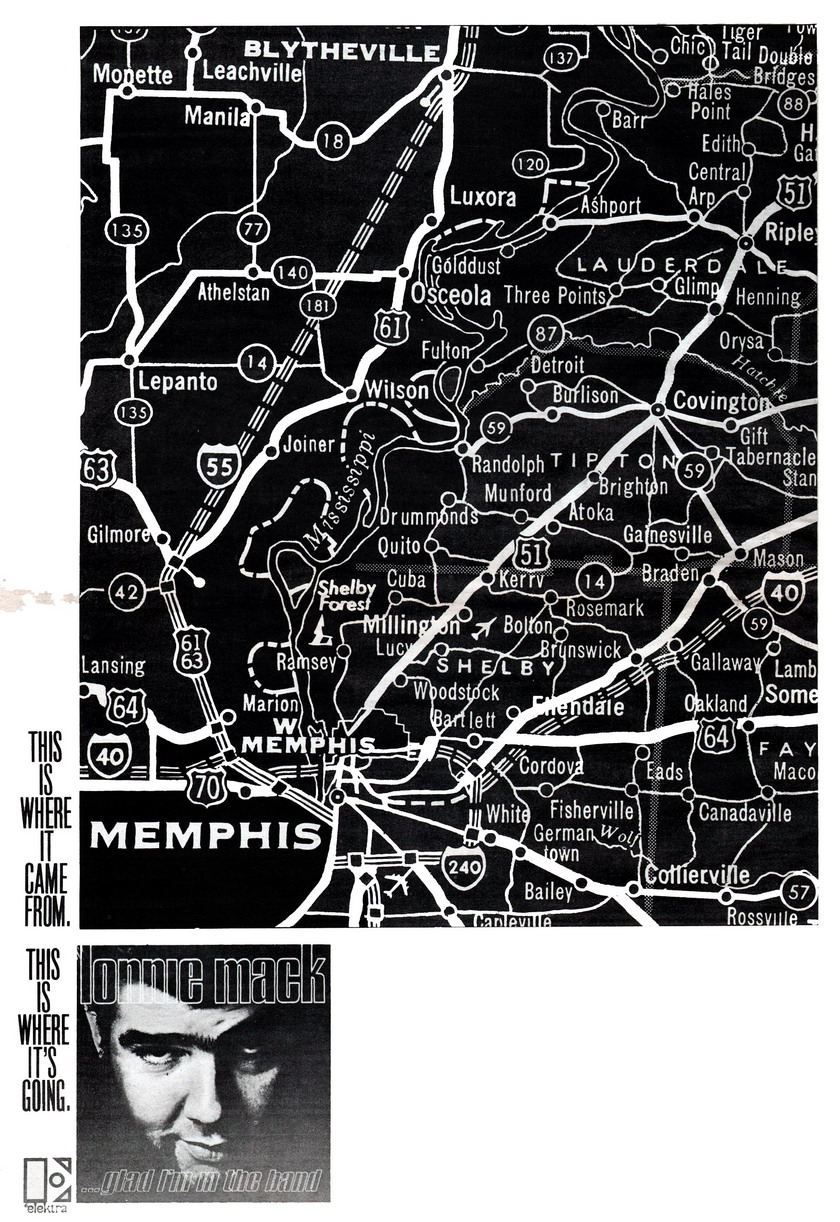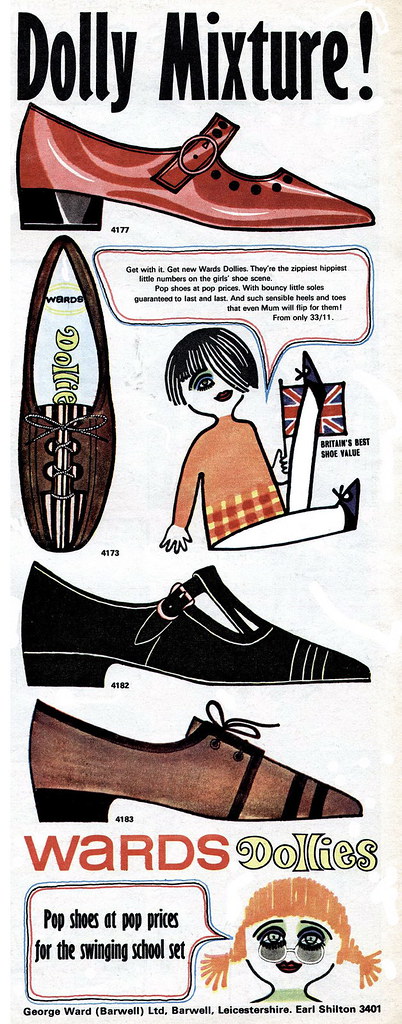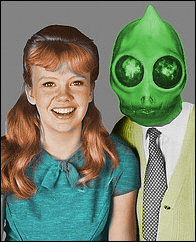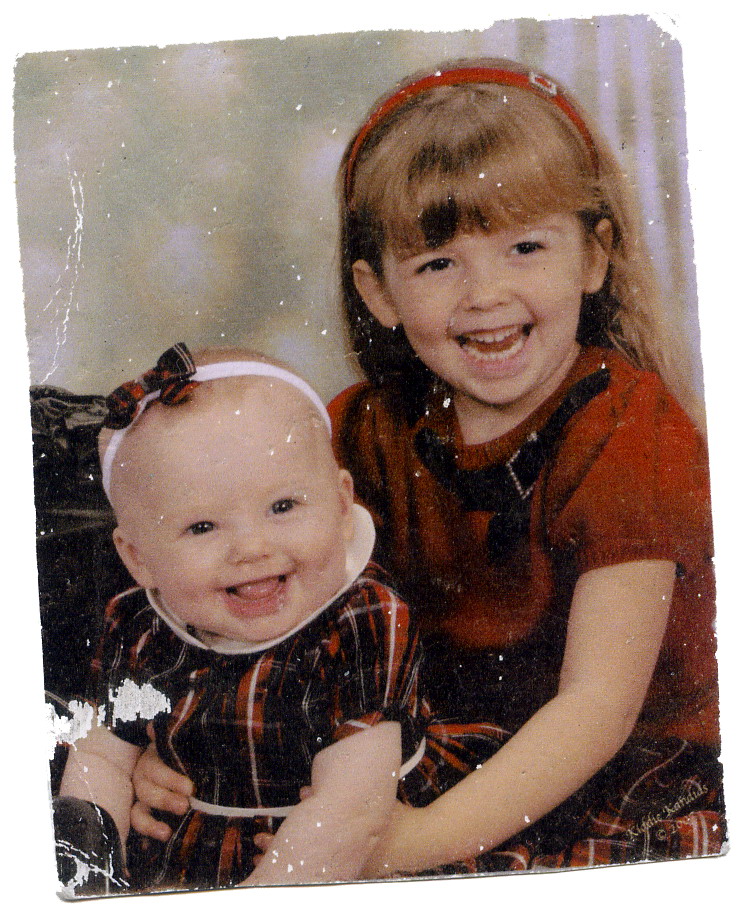 If you lost a photo at the Clairemont Town Square in San Diego this week I found it over by the place that sells the juice slushies. The back reads:
If you lost a photo at the Clairemont Town Square in San Diego this week I found it over by the place that sells the juice slushies. The back reads:
Emily 5 1/2 m
Sami 4 1/2
Christmas 07'
Don't fret that you were careless and forever lost a memento of a very special memory! Just print this photo out and it is like you never lost it. No need for thanks, I'm a gentleman in that way.
Tuesday, September 30, 2008
Found Photo: Emily and Sami
Posted by
Sleestak
at
9/30/2008 06:03:00 PM
1 comments
![]()
![]()
Labels: found, good samaritan, San Diego, selfless
Investigate Accidents
Posted by
Sleestak
at
9/30/2008 09:19:00 AM
3
comments
![]()
![]()
Labels: advertising, employment
Monday, September 29, 2008
Queen of the Super Females
Mapy Cortes as Reina Eva XLV, queen of a hidden island science utopia populated entirely by women.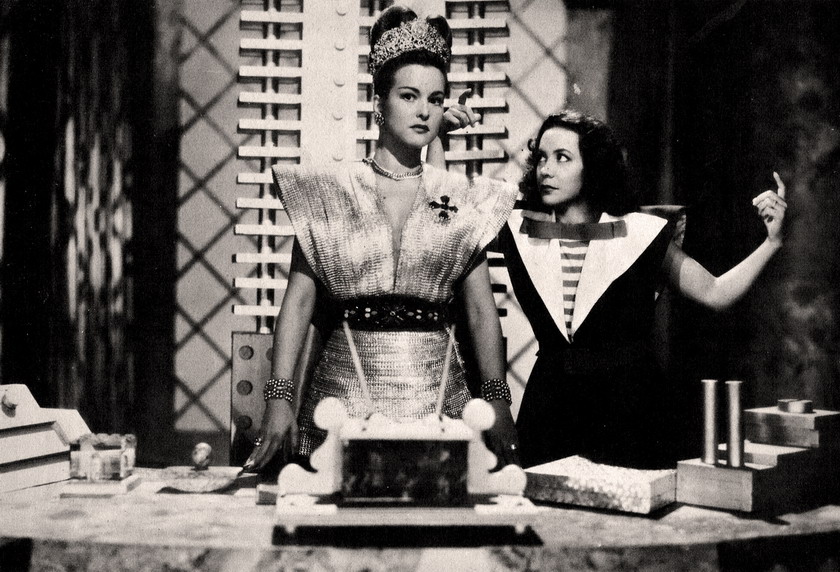
From the 1946 Spanish film El Sexo Fuerte aka Super Females.
Posted by
Sleestak
at
9/29/2008 06:00:00 AM
2
comments
![]()
![]()
Labels: cinema, Science Fiction, women in science fiction
Sunday, September 28, 2008
Return of the Whispering Gorilla
 In the original pulp story The Whispering Gorilla a crime-victim had his brain transplanted into the body of a gorilla. After fighting crime while becoming something of a celebrity the hero suffered a brutal beating at the hands of the local police, causing brain damage which reverted his human brain to that of a wild animal. When last seen, the Whispering Gorilla was being returned to Africa and set free to live among other apes in the hope that he would at last find peace. What no one anticipated is that the injuries suffered by "W. G." were temporary and he soon regained his human intelligence.
In the original pulp story The Whispering Gorilla a crime-victim had his brain transplanted into the body of a gorilla. After fighting crime while becoming something of a celebrity the hero suffered a brutal beating at the hands of the local police, causing brain damage which reverted his human brain to that of a wild animal. When last seen, the Whispering Gorilla was being returned to Africa and set free to live among other apes in the hope that he would at last find peace. What no one anticipated is that the injuries suffered by "W. G." were temporary and he soon regained his human intelligence.
In the February 1943 issue of Fantastic Adventures the tale Return of the Whispering Gorilla was published. In this issue "W.G." is found alive and well (as well as a human brain can be after being placed into the body of a giant primate) in Africa. "W.G." is still fighting crime though this time it isn't petty mobsters he is attacking. This time he is fighting the incursions of the organized criminal cabal of the Nazi invasion into Africa.
In the 1940 issue of Fantastic Adventures the story was credited to Don Wilcox. In the sequel three years later it is David V. Reed penning the story with "permission by Don Wilcox". While many pulp stories are hit-and-miss when it comes to quality the move from the Whispering Gorilla as a Shadow-like mystery man to an heroic defender of the realm is welcome. Any sequel that features a gorilla pummeling Nazis is automatically superior to the original entry.

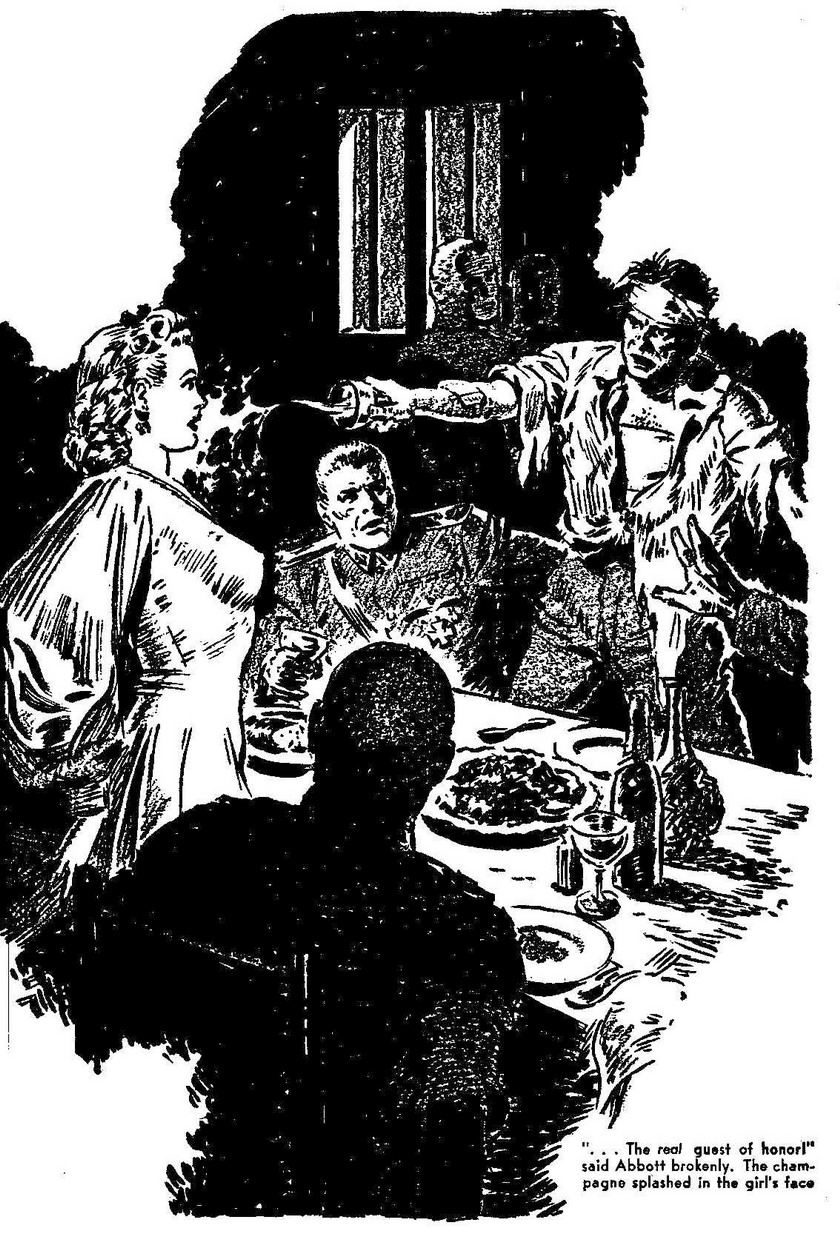
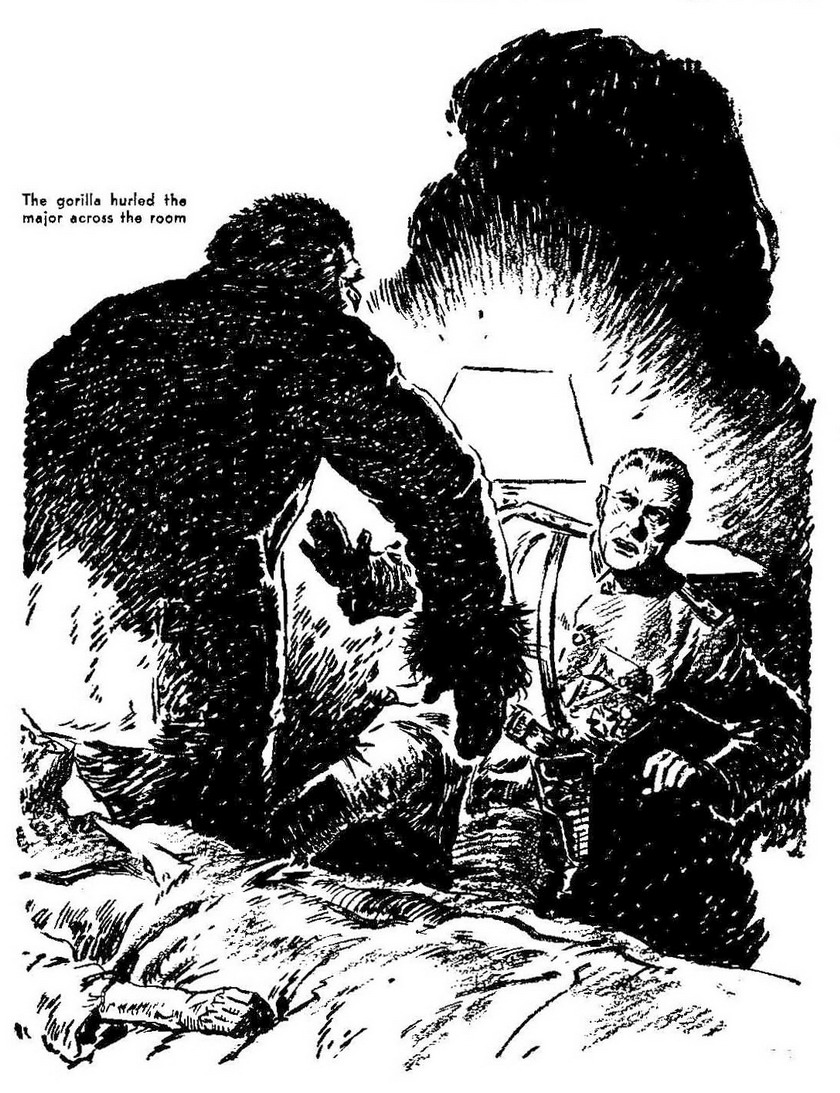 BONUS! "Introducing the Author" page profiling David Reed and featuring Fantastic Adventures editor Julius Schwartz many years before his tenure at DC Comics.
BONUS! "Introducing the Author" page profiling David Reed and featuring Fantastic Adventures editor Julius Schwartz many years before his tenure at DC Comics.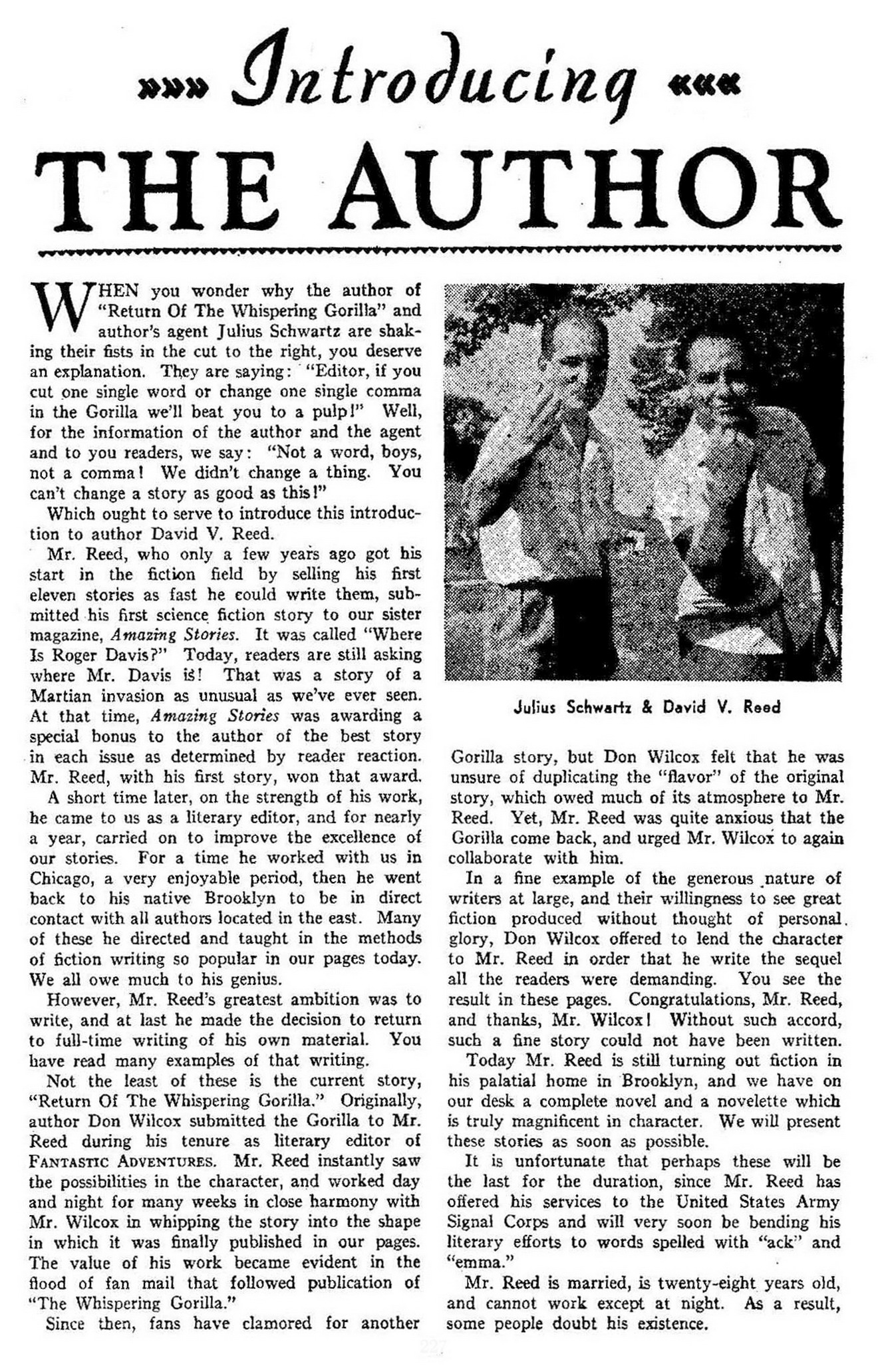
Posted by
Sleestak
at
9/28/2008 06:00:00 PM
0
comments
![]()
![]()
Labels: adventure, Gorilla, julius schwartz, Pulp, Science Fiction, whispering gorilla
Thursday, September 25, 2008
Wednesday, September 24, 2008
Metal men vs. The Walking Dead
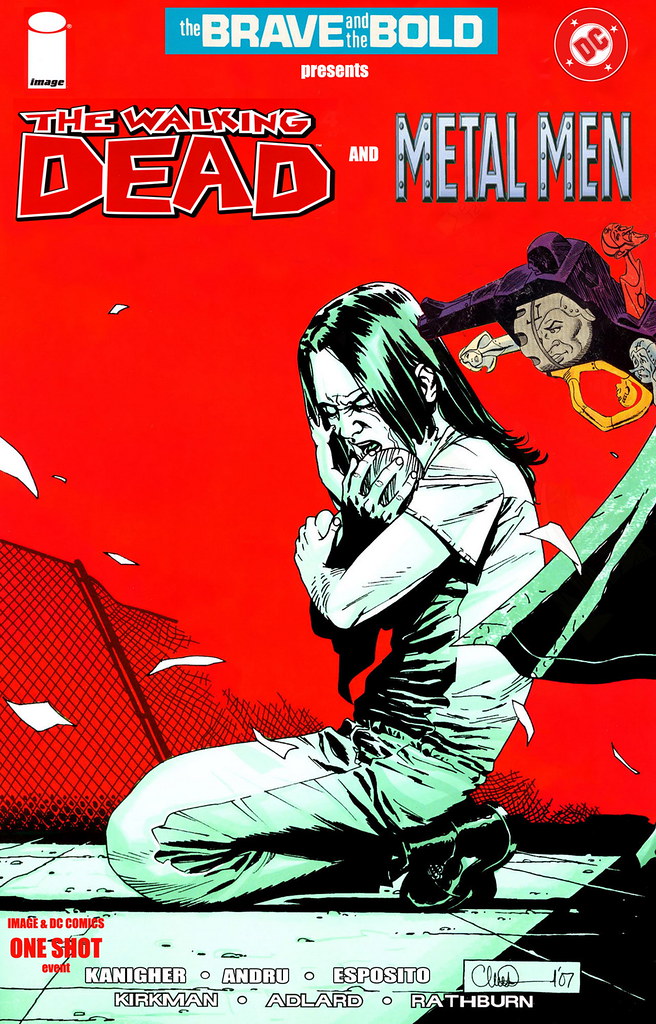 All I can say is, this idea came from one of the most terrifying, exciting and awesome dreams I've had in years. I don't know what anyone else dreams about, but one sequence that stuck with me after waking was of Platinum drawing herself out into a fine wire and looping herself around a horde of zombies, then tightening up and cleanly slicing them all into neatly stacked patties of zombie meat.
All I can say is, this idea came from one of the most terrifying, exciting and awesome dreams I've had in years. I don't know what anyone else dreams about, but one sequence that stuck with me after waking was of Platinum drawing herself out into a fine wire and looping herself around a horde of zombies, then tightening up and cleanly slicing them all into neatly stacked patties of zombie meat.
Posted by
Sleestak
at
9/24/2008 06:00:00 AM
0
comments
![]()
![]()
Labels: dreams, metal men, nightmares, walking dead, zombies
Tuesday, September 23, 2008
Monday, September 22, 2008
Grocery Store Artifact: FAIL
 The spell check function is useless if you don't understand when a word is spelled differently it has a different meaning.
The spell check function is useless if you don't understand when a word is spelled differently it has a different meaning.
Unless we were in coal country. I'd sell smokes, booze, fireworks, spray paint and sharp objects to anyone brave enough to go a mile underground and work under those conditions.
Posted by
Sleestak
at
9/22/2008 04:00:00 PM
1 comments
![]()
![]()
Labels: fail, Grocery Store Artifact
Rod Baby
Posted by
Sleestak
at
9/22/2008 05:30:00 AM
3
comments
![]()
![]()
Labels: crime, crime noir, rod baby, Seduction of the Innocent
Sunday, September 21, 2008
Twinkle and the Lonesome House of Shadows

Some context for the noobs.
Posted by
Sleestak
at
9/21/2008 09:07:00 AM
4
comments
![]()
![]()
Labels: horror, ROM, spaceknight, twinkle
Saturday, September 20, 2008
LN-18 and her Wonderbird

Young Maureen O'Sullivan as LN-18, a typical teenager of the year 1980, and her sweet ride from the 1930 film Just Imagine.
Posted by
Sleestak
at
9/20/2008 07:13:00 PM
2
comments
![]()
![]()
Labels: flight, maureen o'hara, retro-future, Science Fiction, space girl
Sacrilege Lands - Glamour

Some more "proof of concept" imagery for Sacrilege Lands.
You would think after 21 years of marriage my wife would stop insisting I created this image only to justify to her all those pictures of David Boreanaz I was downloading.
Posted by
Sleestak
at
9/20/2008 06:00:00 AM
0
comments
![]()
![]()
Labels: copyright, NaNoMo, provenance, sacrilege lands
Friday, September 19, 2008
Friday Night Fights: Lock and load hands, and come out fightin'!
Posted by
Sleestak
at
9/19/2008 04:30:00 PM
0
comments
![]()
![]()
Labels: bahlactus, friday night fights, gun hand, ladies night
Eva Bartok
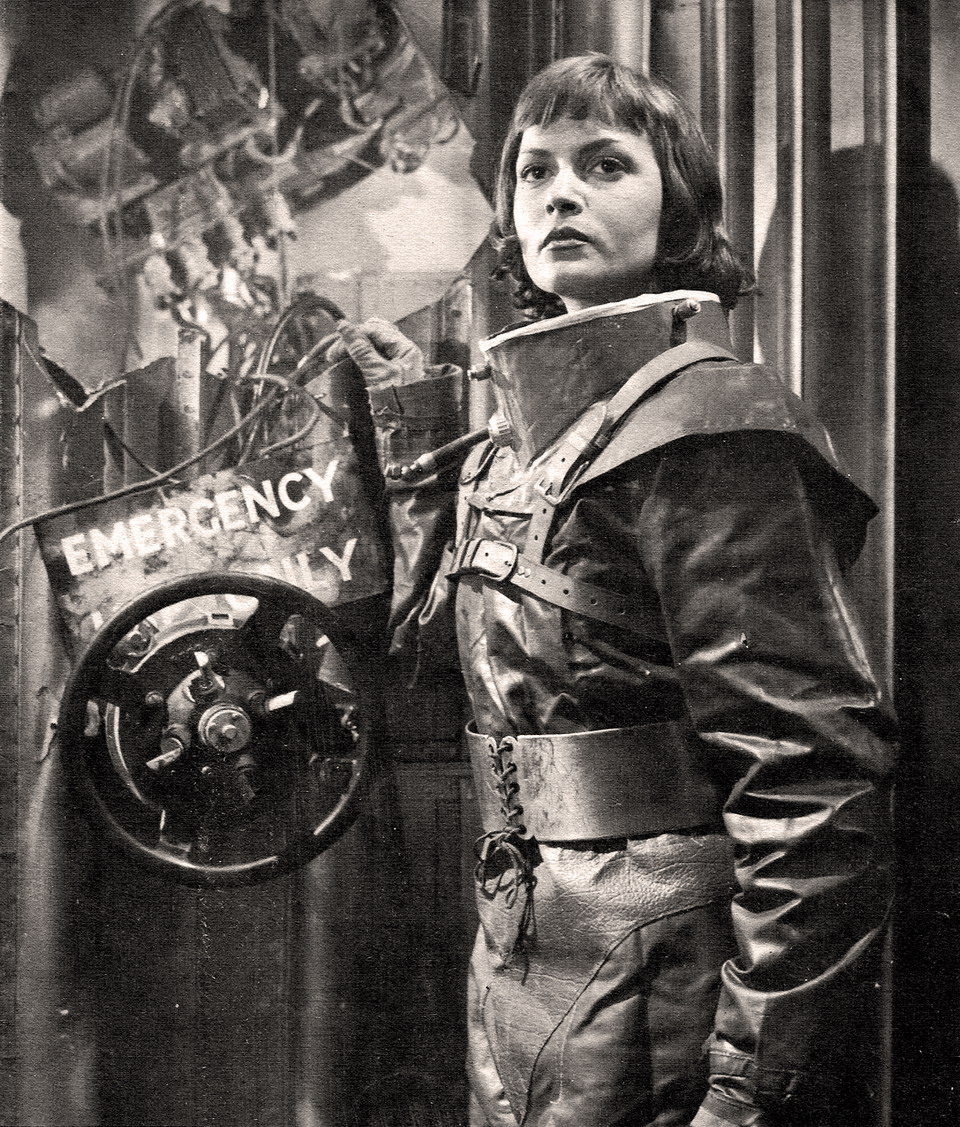
Eva Bartok. Hungarian. Concentration Camp survivor. Space Girl.
From the film Spaceways (1953).
Posted by
Sleestak
at
9/19/2008 06:00:00 AM
0
comments
![]()
![]()
Labels: cinema, eva bartok, Science Fiction, space girl
Wednesday, September 17, 2008
Tuesday, September 16, 2008
Weird and Headless
Posted by
Sleestak
at
9/16/2008 07:15:00 AM
1 comments
![]()
![]()
Labels: horror, illustration, Pulp
Monday, September 15, 2008
Conan vs. Terminator
I was looking through my collection of Savage Sword of Conan magazines and one cover by Earl Norem (see it here) in particular gave me an idea. The ethereal specter of death hovering over the plain in the background of the battle scene could easily be the skull of a T-100. The bodies of the slain heaped up beneath Conan's heels could be not only Hyperborean warriors but the chassis of wrecked Terminator soldiers as well.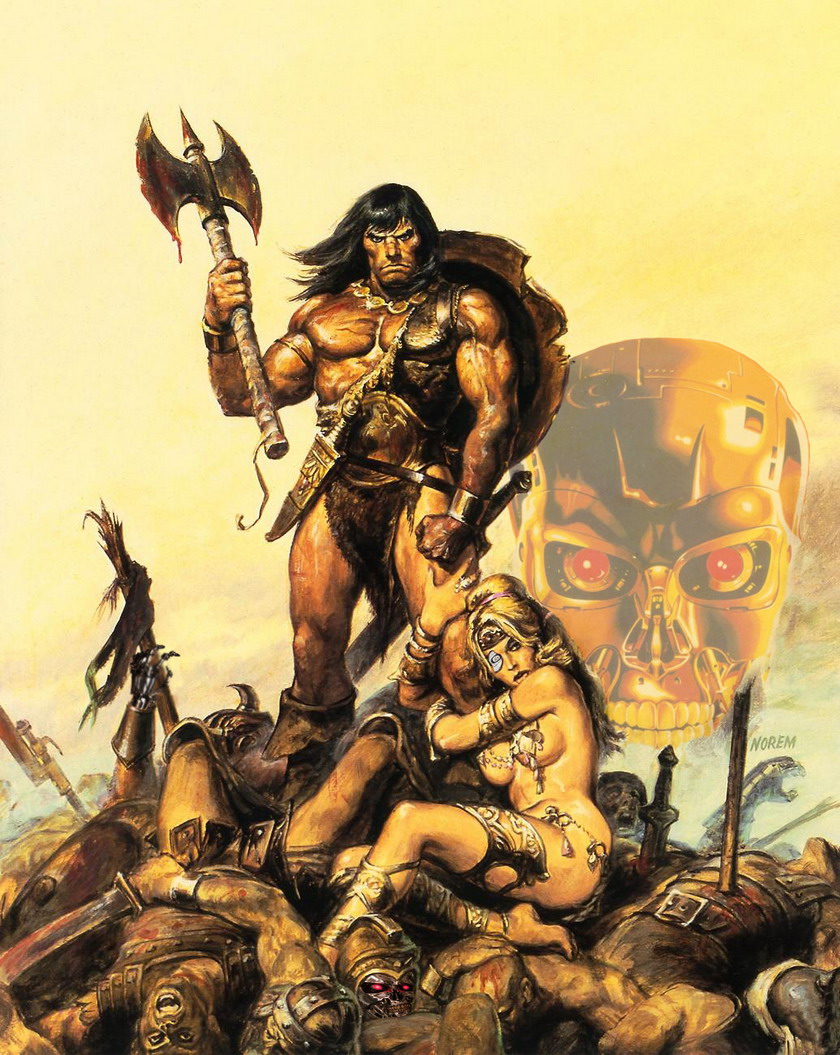
A Conan vs. Terminator film would be rad. I'd pay to see the film twice or more. I'd eat the marketing tie-in Happy Meals. I'd buy all the novelization and comic book adaptations plus the ensuing series and one-shots. I'd fall for every Special Edition and Director's Cut re-issue of the DVD. I'd purchase two each of all the toys (one to play with, one to keep in original packaging). No matter how stupid or useless any product some soulless clown in a licensing office thought up in connection with the Conan vs. Terminator franchise I would buy it, and be glad to do it.
Original art elements by Earl Norem and Paul Gulacy.
Posted by
Sleestak
at
9/15/2008 06:00:00 AM
5
comments
![]()
![]()
Labels: conan, Earl Norem, Paul Gulacy, terminator
Sunday, September 14, 2008
Always leave a good looking corpse
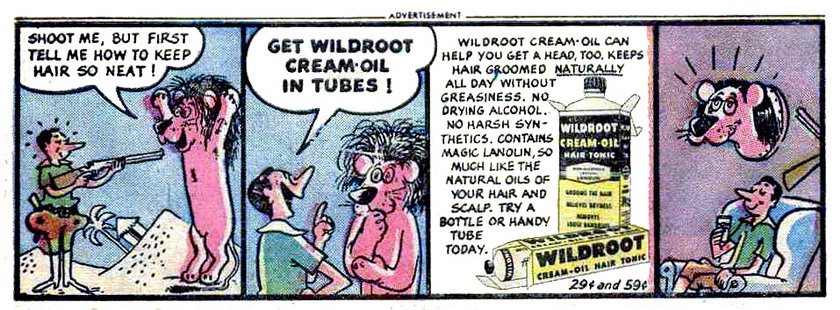 I understand the aspect of advertising that depicts animals overjoyed and eager to end up on your dinner plate. It does not help sales to show cute forest creatures fleeing in terror of being eaten or begging to be spared the axe and agonizing death. I, on the other hand, prefer knowing the truth when it comes to the origins of my food, but that's just me. I don't care to have my brisket sugar-coated, thank you.
I understand the aspect of advertising that depicts animals overjoyed and eager to end up on your dinner plate. It does not help sales to show cute forest creatures fleeing in terror of being eaten or begging to be spared the axe and agonizing death. I, on the other hand, prefer knowing the truth when it comes to the origins of my food, but that's just me. I don't care to have my brisket sugar-coated, thank you.
But I don't care about how attractive an animal or vegetable is before it gets cooked as long as it appears appetizing when it is time to stab it with a fork and saw it up with my knife. It is a fact that endangered, ugly animals are the tastiest (as all those visitors to Mauritius island can attest). However, good personal grooming habits are always important and I have to give points to the doomed lion who took the secret of being neat and clean with him to the grave.
From Superman #86 (January 1954).
Posted by
Sleestak
at
9/14/2008 06:00:00 AM
0
comments
![]()
![]()
Labels: advertising, Comic Book Ad, fashion
Saturday, September 13, 2008
Friday, September 12, 2008
The Accredited Swimming Suit
Posted by
Sleestak
at
9/12/2008 03:00:00 PM
0
comments
![]()
![]()
Labels: advertising, Art, fashion, illustration, Vintage
Thursday, September 11, 2008
Protest Art
 An example of one of the few things hippies are good for, though a tad coffee house beat-poet and derivative for my tastes.
An example of one of the few things hippies are good for, though a tad coffee house beat-poet and derivative for my tastes.
Chicago Seed (March 1968).
Posted by
Sleestak
at
9/11/2008 04:00:00 PM
1 comments
![]()
![]()
Labels: anti-war, Art, hippies, illustration, protest, vietnam, war
Acro-Pets
Posted by
Sleestak
at
9/11/2008 07:50:00 AM
2
comments
![]()
![]()
Labels: advertising, Art, Comic Book Ad, illustration, toys
Wednesday, September 10, 2008
Surplus Astronaut Space Helmet
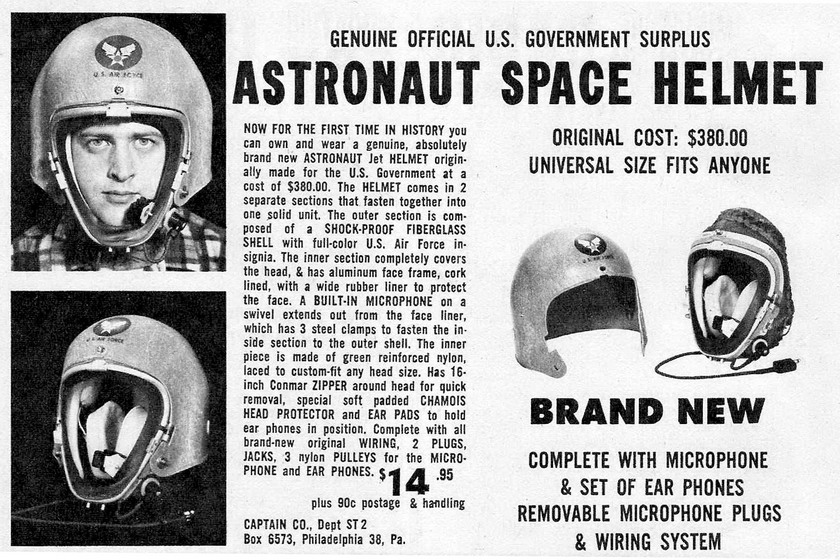 You have to have a space helmet to complete the suit.
You have to have a space helmet to complete the suit.
Screen Thrills Illustrated #2 (September 1962).
Posted by
Sleestak
at
9/10/2008 04:10:00 PM
4
comments
![]()
![]()
Labels: advertising, space race
Cheesecake/Beefcake
Posted by
Sleestak
at
9/10/2008 06:00:00 AM
3
comments
![]()
![]()
Labels: beefcake, cheesecake, crime, crime noir, detective
Tuesday, September 09, 2008
How'd that work out for you, Ginny?
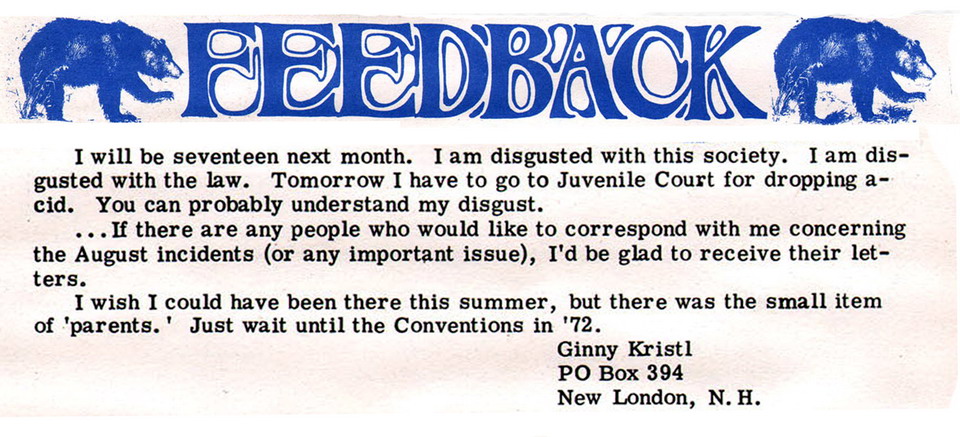 I'd wager the day Ginny hit 18 years old and she realized that Mommy and Daddy were no longer giving her a free ride with food and shelter she sold out to the man at the first hunger pang.
I'd wager the day Ginny hit 18 years old and she realized that Mommy and Daddy were no longer giving her a free ride with food and shelter she sold out to the man at the first hunger pang.
Chicago Seed (January 1969).
Posted by
Sleestak
at
9/09/2008 03:00:00 PM
0
comments
![]()
![]()
It's a miracle!
Posted by
Sleestak
at
9/09/2008 06:00:00 AM
2
comments
![]()
![]()
Labels: Comic Book Romance, gullible, reality, religion, stupid, wingnut
Monday, September 08, 2008
Surplus Astronaut Space Suit
Posted by
Sleestak
at
9/08/2008 12:11:00 PM
5
comments
![]()
![]()
Labels: advertising, retro, space race
Sunday, September 07, 2008
Squarehead
I think I've seen nearly everyone of these gags on a popular cartoon series over the last couple of years. To be fair, how many jokes can possibly be derived from having a square-shaped body?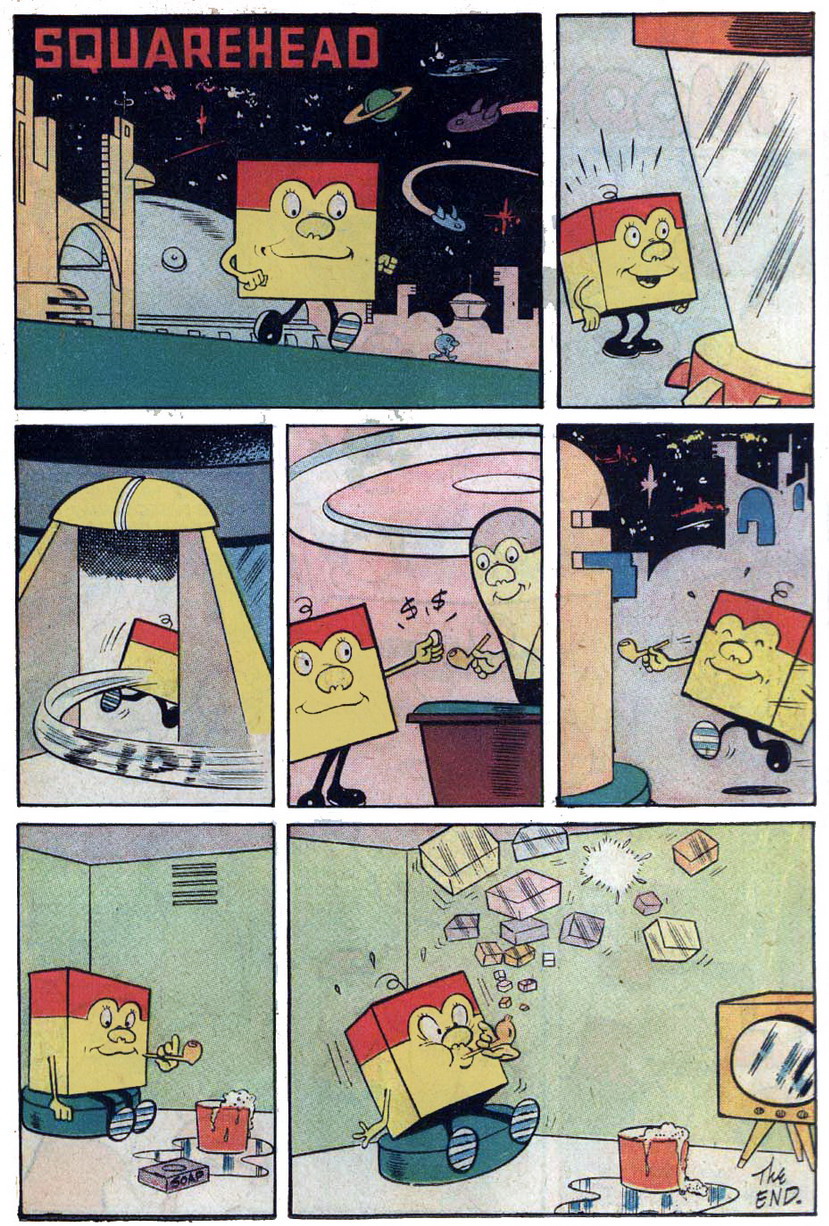
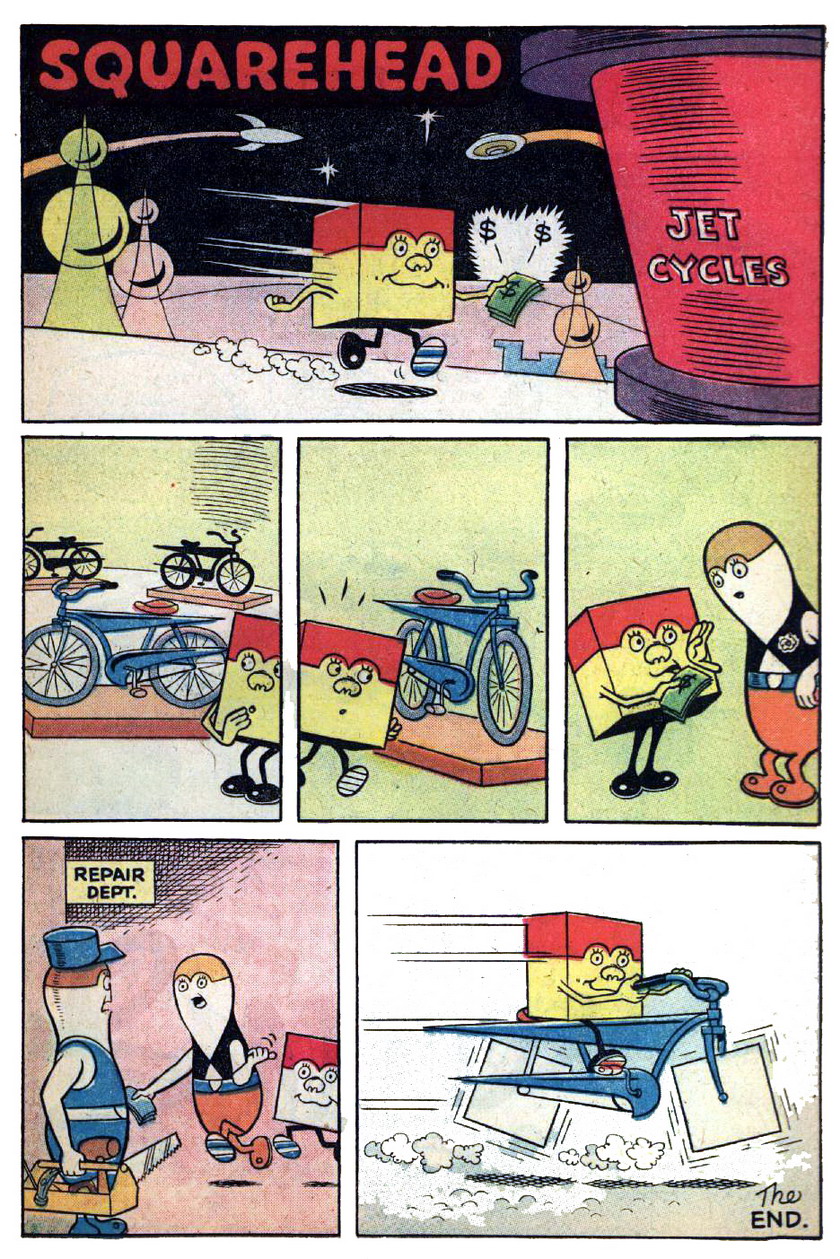
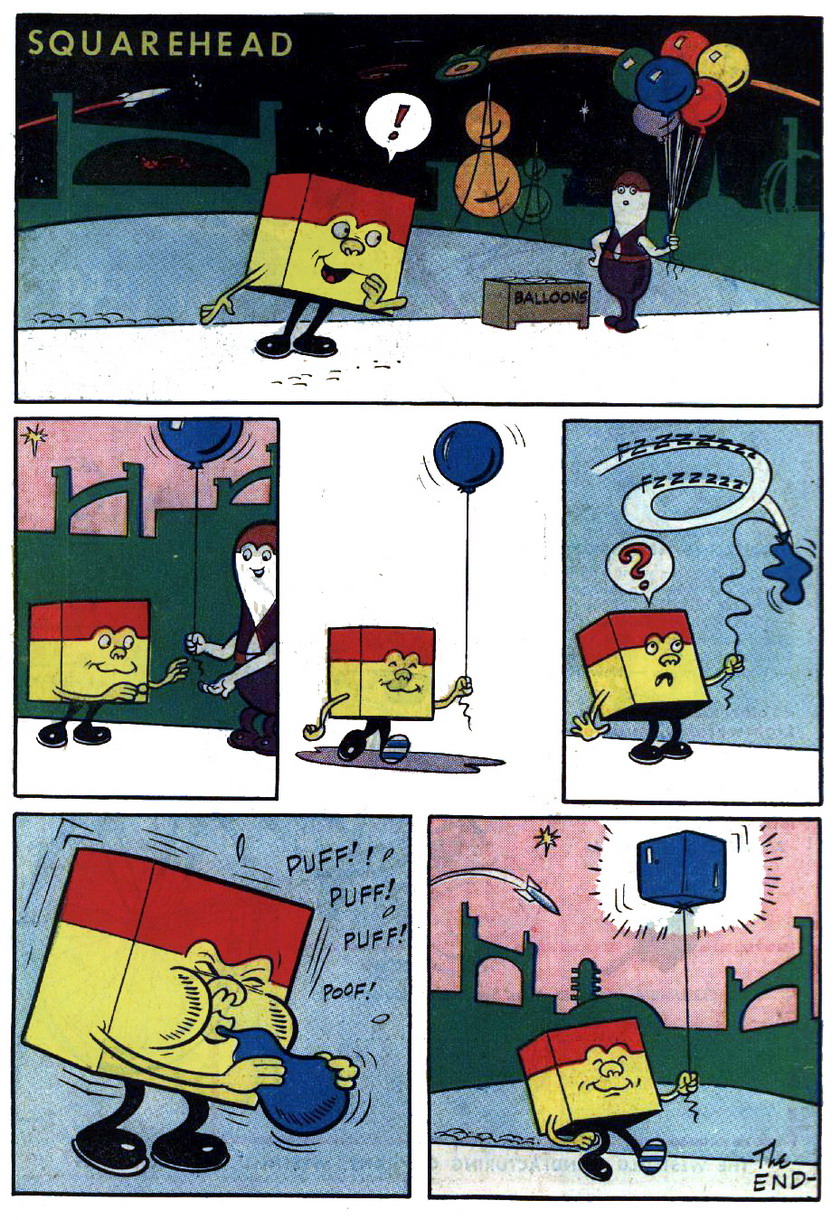
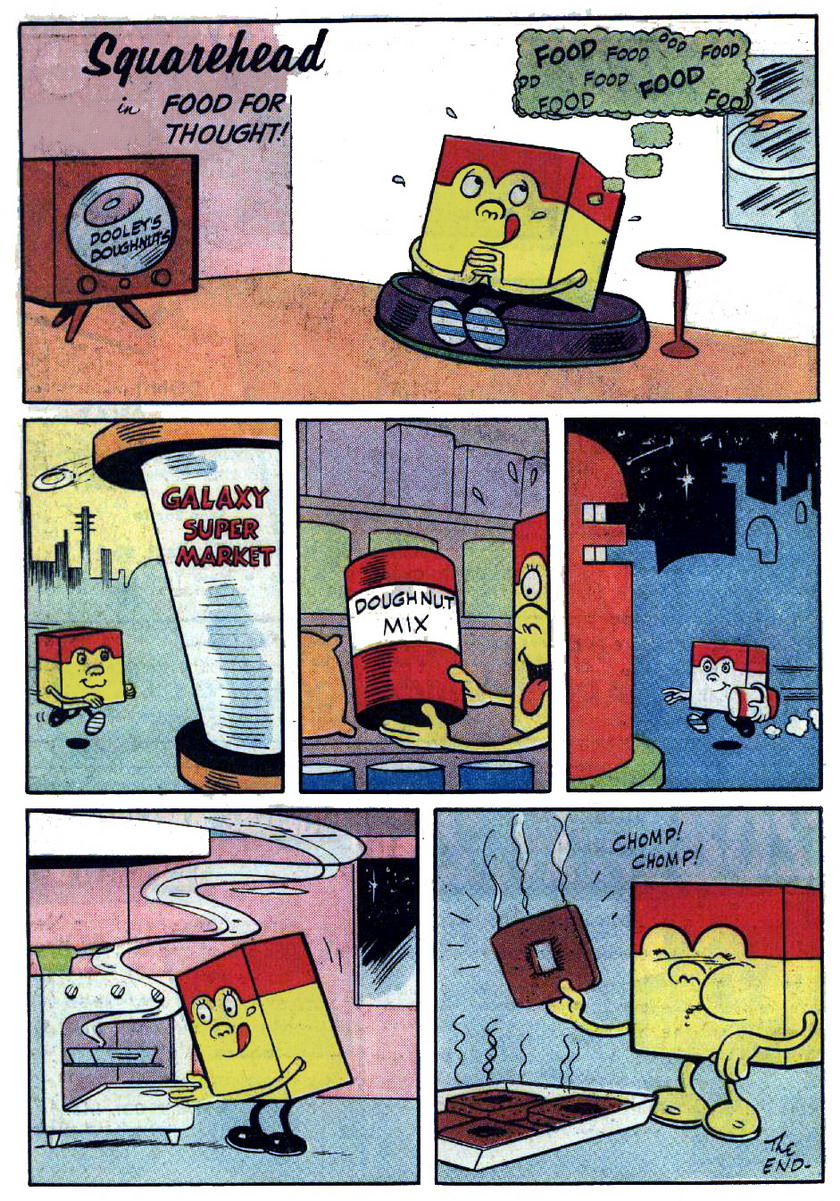
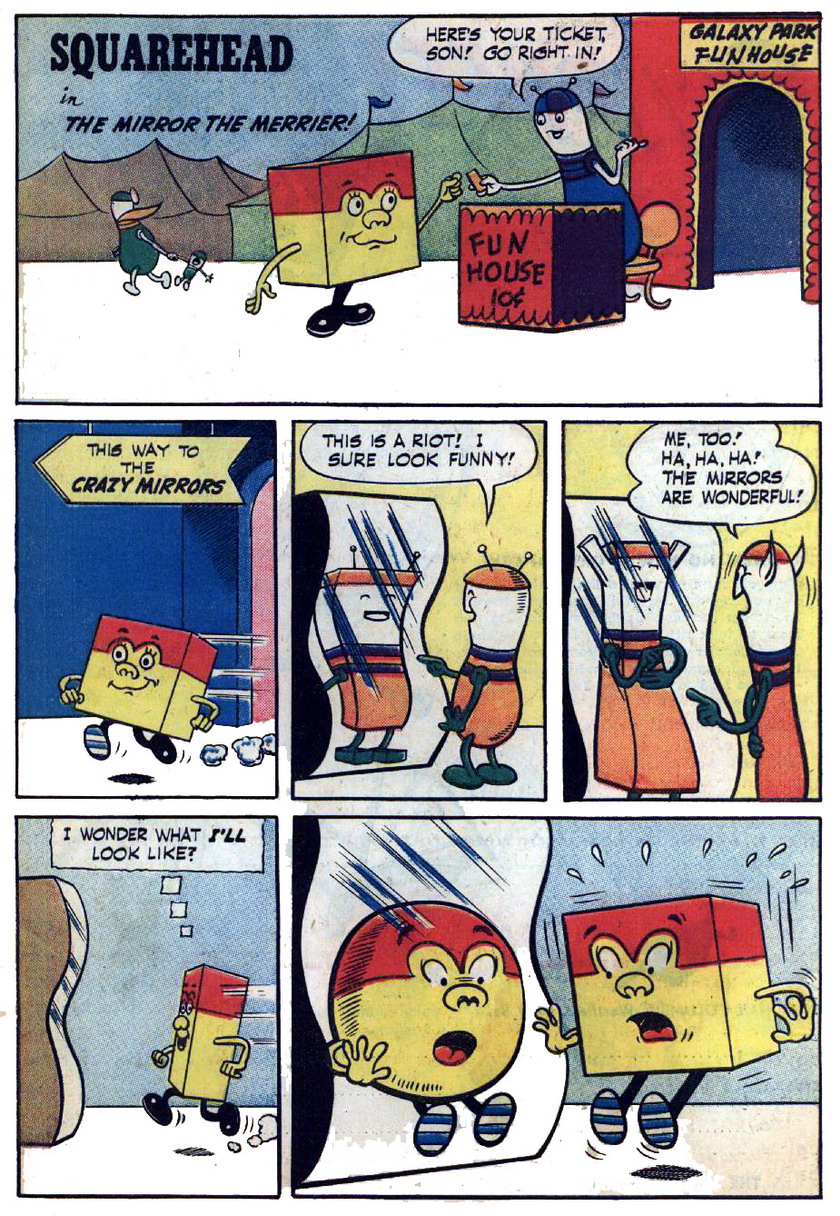
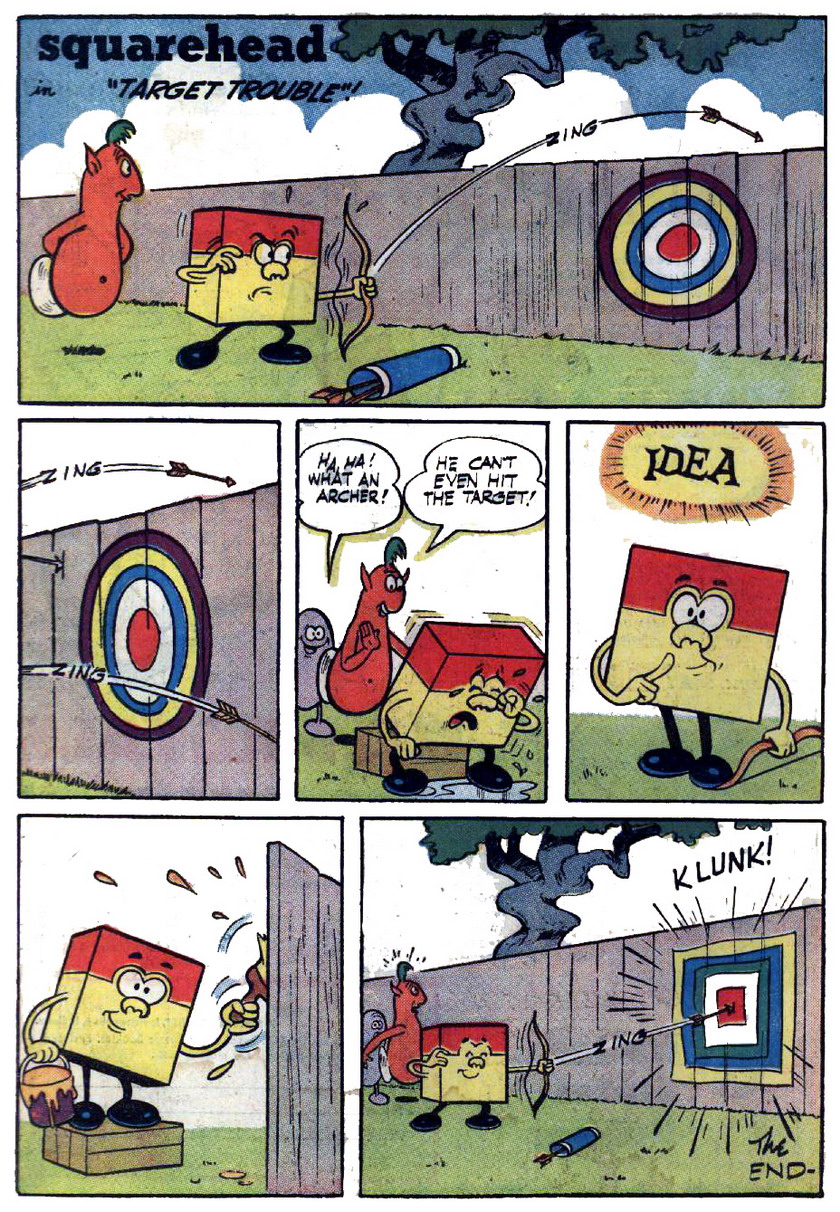 From Cosmo the Merry Martian #1-6 (Archie Comics, 1958 series).
From Cosmo the Merry Martian #1-6 (Archie Comics, 1958 series).
Posted by
Sleestak
at
9/07/2008 06:00:00 AM
4
comments
![]()
![]()
Labels: spongebob, squarehead
Saturday, September 06, 2008
Happy Birthday to Me
Family and friends. Cool tunes and some cartoons. Birthdays don't get better than that.
Posted by
Sleestak
at
9/06/2008 06:00:00 AM
6
comments
![]()
![]()
Labels: happy birthday, holiday, Sleestak
Friday, September 05, 2008
Dolly Mixture
Posted by
Sleestak
at
9/05/2008 06:00:00 AM
0
comments
![]()
![]()
Labels: advertising, Comic Book Ad, fashion, mod
Thursday, September 04, 2008
Nipping at the heels of giants
Being #1 on the 6th would be a nice birthday gift. So everybody stop posting. Stats as of September 4, 2008.
Stats as of September 4, 2008.
Posted by
Sleestak
at
9/04/2008 04:37:00 PM
3
comments
![]()
![]()
Labels: fandom, Lady That's My Skull
The Unsolid Men
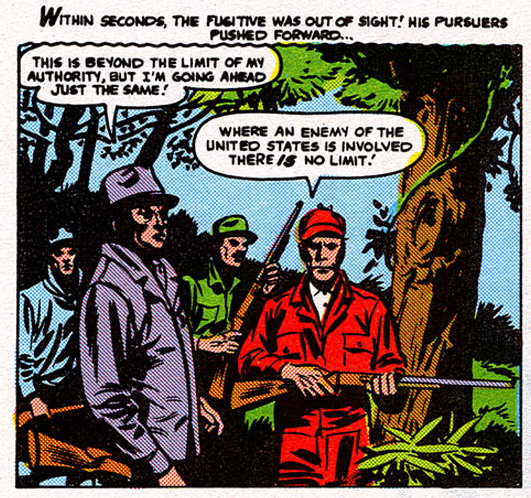 Every now and then someone writes an article decrying the editorial changes that sometimes accompany reprints of classic comic book stories. More often than not it is nudity or other adult themes that get changed or censored. I find it odd that pen drawings of semi-nude figures were okay for young adults to see in the 1970s but is no longer considered appropriate today. I come down on the side of those that want reprints to remain as they were originally intended to be published, even if they contain inappropriate imagery and themes. This is for history's sake and as a cultural measurement. We can not as a people accurately gauge our progress if we sanitize the past.
Every now and then someone writes an article decrying the editorial changes that sometimes accompany reprints of classic comic book stories. More often than not it is nudity or other adult themes that get changed or censored. I find it odd that pen drawings of semi-nude figures were okay for young adults to see in the 1970s but is no longer considered appropriate today. I come down on the side of those that want reprints to remain as they were originally intended to be published, even if they contain inappropriate imagery and themes. This is for history's sake and as a cultural measurement. We can not as a people accurately gauge our progress if we sanitize the past.
It is a fantasy, but if nothing else I'd like to see two versions of classic comic books made available. One version honestly printed for historic value and scholarly pursuit, the other version updated and annotated only where a change would make the book accessible to everyone. There are thousands of old books that could not be reprinted because of old and unenlightened viewpoints. There are many great Golden Age and Disney titles that I could not recommend to readers because of the content, though I understand some of the old Disney strips had the appearance of some characters changed. I know I'd enjoy those Will Eisner Spirit collections more if the racial stereotypes were, to coin a phrase, De-Pie-Faced.
Yet, comic books have had a hard time being accurate mirrors of society. While the general populace will live and think one way, popular media will present it as nothing remotely resembling reality. Comics books are realistically shaped by market forces and often what the creators erroneously believe contemporary culture and society is actually like or what they judge it should be like. Marvel (nee Atlas/Timely/Etc) under the guidance of Stan Lee and others was most popularly notorious for this. Wherever it was among the political and cultural spectrum that contemporary popular society resided, Stan Lee was right there. Whether the subject was Communism, a schizophrenic version of Feminism, environmentalism, Civil Rights and even the advantages of the Military/Industrial complex Stan Lee knew the market, was aware of what it would accept and was astute in type of comic book to produce.
One often has to read between the panels to discern where the social and political bias lies in comic books. Company, editorial and creator agendas, opinions and ploicies are often vastly different from the other. Rarely were they all ever on the same page. For decades comic books were little more than propaganda pamphlets and this was most obvious during the 1940s and 1950s. This was more a survival tactic than anything else. Knowing that the only way to survive against parent groups and government interference was to not offend or rock the boat, most companies adopted a "go along to get along" policy that lasted for the most part well into the 1970s. It was really only the subversive creativity of writers and artists and their stealthy rebelliousness as they chafed under the Comics Code that allowed any story to deviate from a bland, inoffensive all-ages fare.
There are many examples scattered through Marvel, DC and Charlton where the story is heavily biased towards the prevailing status quo. I touched on this previously in the post Iron Man vs. Titanium Man: Then and Then. In the 15 years between the original story and the re-telling Tony Stark went from being unable to beat a helpless foe because he, as a symbol of America was morally and ethically superior to other political systems to someone who would get off on being able to utterly humiliate and crush an enemy. Each story was firmly based in the prevailing sentiment of the era.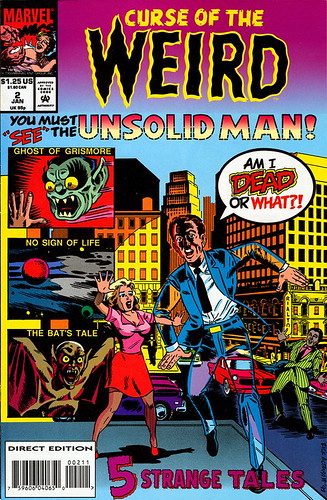
One of those stories that was changed between being originally published and reprinted is the story The Unsolid Man from World of Fantasy #13 (August 1958), reprinted in Curse of the Weird #2 (January 1994). The story is marginally about a fugitive running from the law with a bit of science fiction thrown in. There is some silliness about being out of sync with time though it is really better told as an hallucination caused by stress and physical pressure from a ride on a rocket sled.
Between 1958 and 1994 the story was changed ever-so-slightly in content due to the perception of who could safely be demonized by American culture. In the original story a man is labeled a traitor and hounded by the authorities for exercising free speech. It is never clearly stated what the character, Benson, did to deserve such official enmity but he appears educated, carries a guitar and is traveling through Texas. He could be a folk-singer causing unrest through his songs, working for civil rights or a Marxist. What makes this story subversive is that while a reader could easily assume the character was a communist, the props suggests he was more of an "egg-head" and a crank disliked by the powers that be.
That the story was changed was something of a waste of effort. The original story would have had the benefit of perhaps making a new or young reader think and analyze the content of the tale. But an already mediocre tale was retconned to make the story completely forgettable and yet another entry in Marvel's long history of plots driven by the cliche' of the Red Menace.
Benson was called a Communist later in the story, but this was also something as a catch-all phrase used as a pejorative against anyone who did not act like one of the sheep. This is where the creators may have made their opinion towards the establishment known. There is also a little humor in one panel referring to the limits, or lack thereof, of government powers that may be unintentional but closely parallels issues today. Benson is basically attacked and ostracized by Law Enforcement only for his unpopular views. In 1958 this was widely accepted as a valid tactic for silencing those upsetting the apple cart (and is enjoying something of a resurgence in recent years).
In the 1994 reprinting of the story in the crime of lecturing an alternative viewpoint is changed. It is no longer in vogue to beat up intellectuals, no matter how wrong-headed and weird they may be and the Constitution is used and referred to instead of being outright ignored. Benson is not lecturing in this telling and is now accused of calling for the violent destruction of government facilities.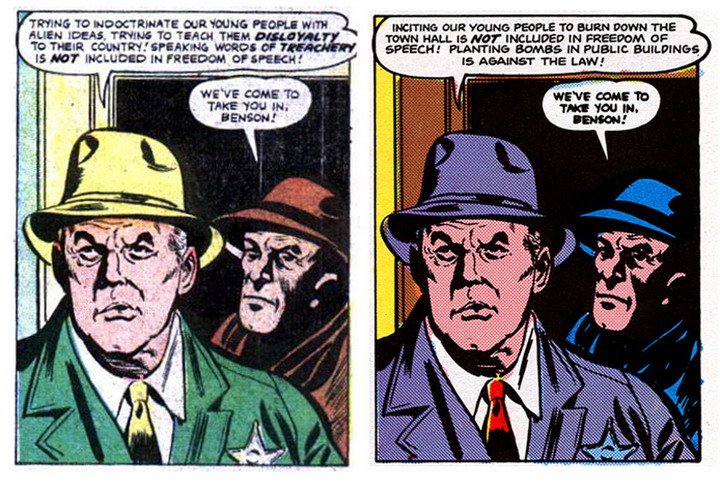 In 1994 the character is no longer a harmless crank. Benson is now depicted as dangerous and unstable. The Law Enforcement officers are not ignorant thugs intolerant of other viewpoints but are actually heroes, rooting out evil as it preys on their children.
In 1994 the character is no longer a harmless crank. Benson is now depicted as dangerous and unstable. The Law Enforcement officers are not ignorant thugs intolerant of other viewpoints but are actually heroes, rooting out evil as it preys on their children.
Here is the original version of The Unsolid Man from World of Fantasy #13 (August 1958).
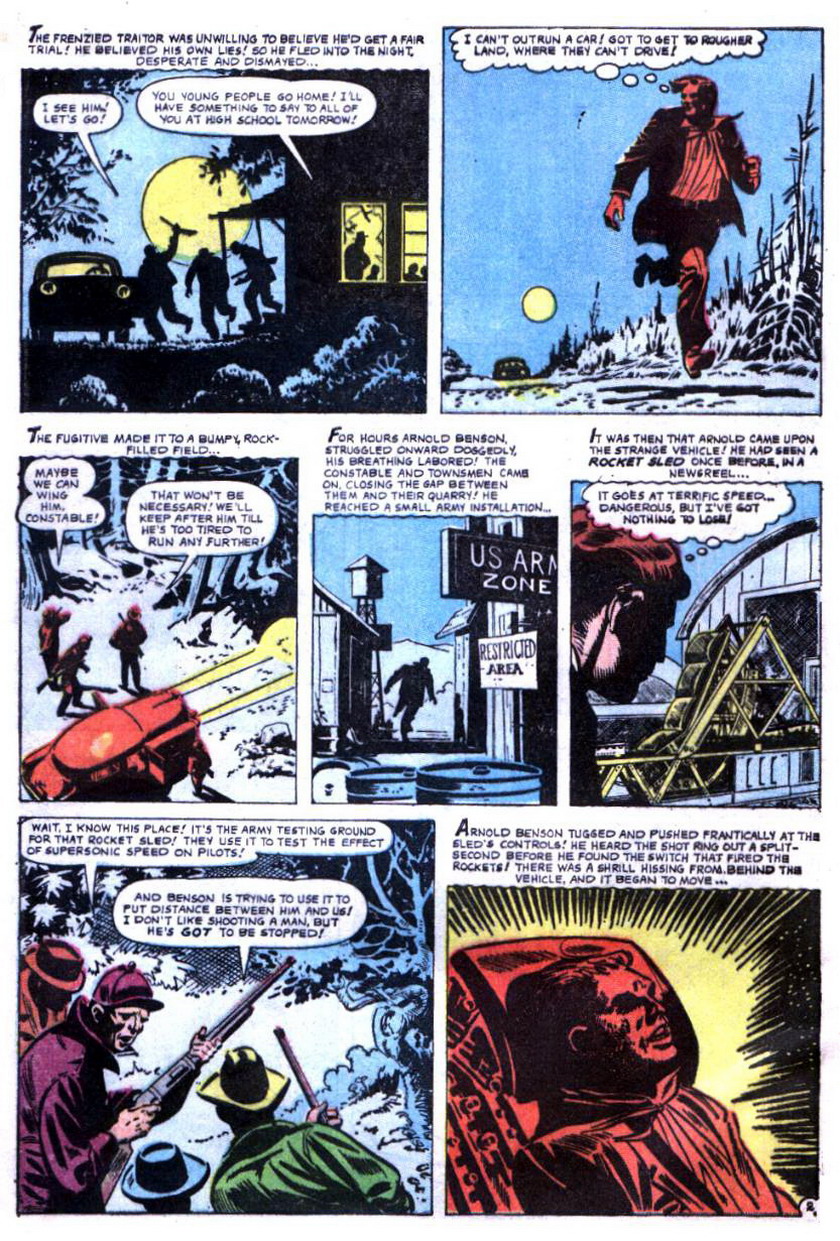
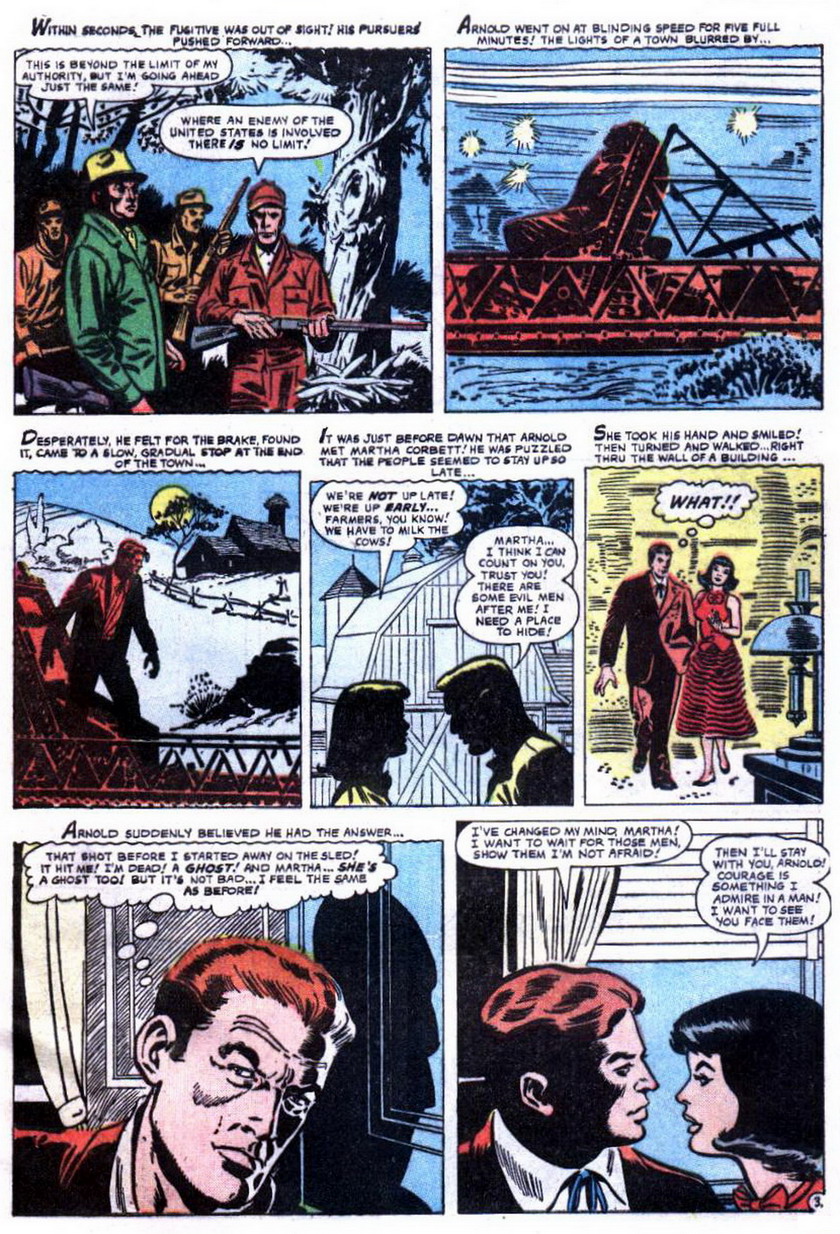

Posted by
Sleestak
at
9/04/2008 09:00:00 AM
1 comments
![]()
![]()
Labels: culture, Politics, Seduction of the Innocent

